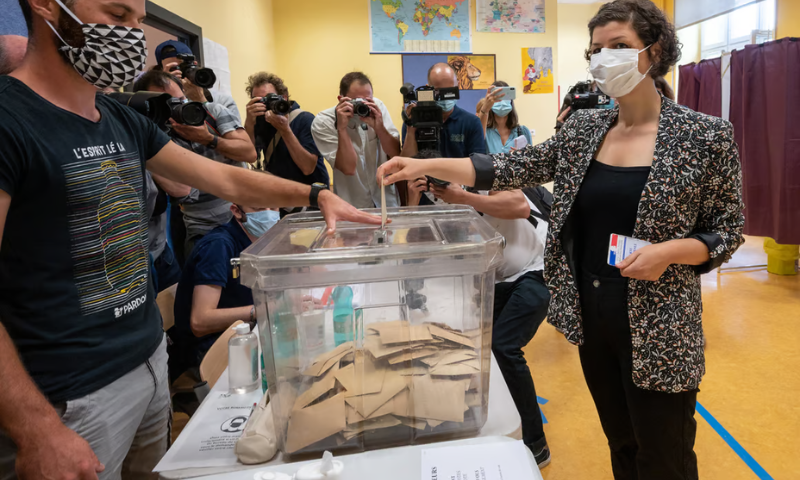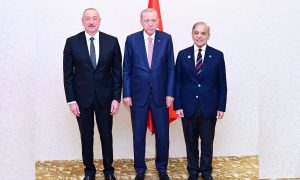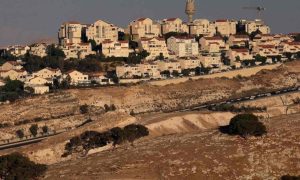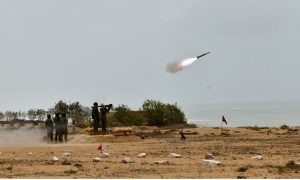Paris: French voters flocked to the polls on Sunday in numbers not seen for decades for the first round of France’s snap parliamentary elections which could see Marine Le Pen’s far-right National Rally (RN) party take power for the first time in French history.
President Emmanuel Macron’s decision to call for snap polls followed a decisive victory for the RN in recent European Parliament elections, shaking the political landscape in France. As voters across the country headed to polling stations, turnout surged to levels not witnessed in decades, reflecting the heightened polarization and uncertainty surrounding the election.
By 5:00 pm (1500 GMT), 59.39 percent of eligible voters had cast their ballots, according to the interior ministry, marking a stark increase of nearly 20 percentage points compared to the same stage in 2022. Projections suggest a final turnout between 67.5 and 69.7 percent, the highest for regular format legislative elections since 1981.
The surge in voter participation underscores the gravity of the choice facing the electorate, amidst concerns over economic challenges exacerbated by Russia’s ongoing war with Ukraine and rising costs of energy and food.
The RN, under the leadership of 28-year-old Jordan Bardella, a protege of Marine Le Pen, has capitalized on public discontent, particularly on issues of immigration and Euroscepticism. Opinion polls indicate the RN is positioned to secure the largest share of seats in the National Assembly after the second round on July 7, although an outright majority remains uncertain.
In Marseille, voter Nabil Agueni expressed the importance of participating in the election, stating, “As long as we have a choice, it’s better to go and vote.” Meanwhile, Nicole Cherprenet in Paris voiced apprehension about the future, remarking, “The future scares me.”
Ahead of polling day, some shopkeepers in major cities took precautionary measures by boarding up storefronts amid concerns of potential unrest.
President Macron and his wife Brigitte cast their votes in Le Touquet, engaging with supporters amid a charged atmosphere. Marine Le Pen, campaigning in her stronghold of Henin-Beaumont, was seen greeting voters warmly.
The final opinion polls placed the RN between 35 and 37 percent of the vote, with the leftist New Popular Front alliance trailing at 27.5 to 29 percent, and Macron’s centrist camp at 20 to 21 percent. Analysts suggest that turnout will play a crucial role in determining the outcome, potentially influencing alliances and strategic voting in the second round.
Polling stations in major cities were set to close at 8:00 pm and will immediately be followed by projections that usually predict the result with a degree of accuracy.
Voters in France’s overseas territories had cast ballots earlier in the weekend. In the French Pacific territory of New Caledonia, where tensions remain high following deadly riots there last month, turnout stood at 60 percent compared to 32.5 percent recorded during legislative polls in 2022.
Macron’s decision to call the snap vote plunged the country into political turmoil and sparked uncertainty in Europe’s second-biggest economy.
The Paris stock exchange suffered its biggest monthly decline in two years in June, dropping by 6.4 percent, according to figures released on Friday.
Many have pointed to a spike in hate speech, intolerance and racism during the charged campaign. A video of two RN supporters verbally assaulting a black woman has gone viral in recent days.
Macron has deplored “racism or anti-Semitism”.
Support for Macron’s centrist camp tumbled during the campaign, while left-wing parties put their bickering aside to form the New Popular Front, in a nod to an alliance founded in 1936 to combat fascism.
























